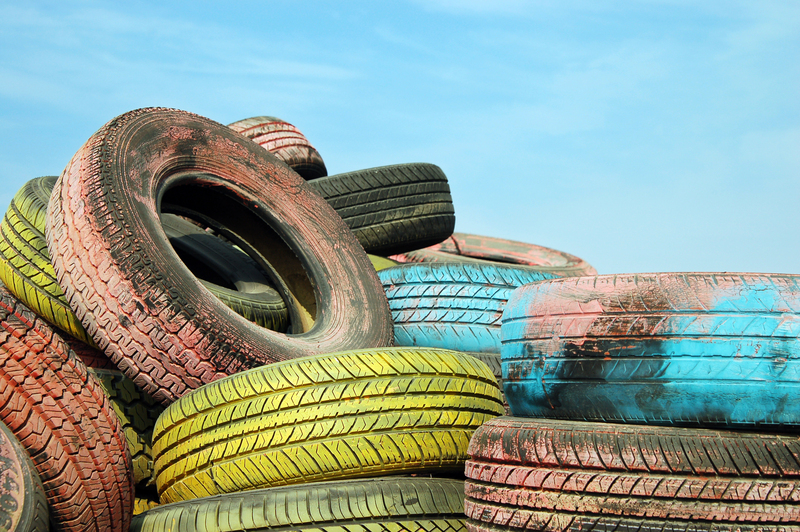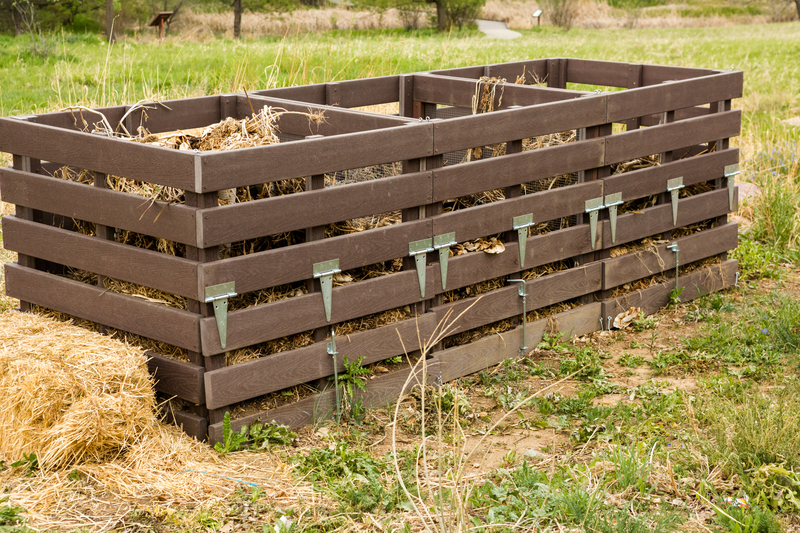Beat High Disposal Fees With These Bulky Waste Money-Saving Ideas
Are you drowning in unwanted furniture, household junk, or construction debris, and dreading the hefty fees of professional bulky waste disposal? With landfill charges on the rise, disposing of bulky items such as sofas, mattresses, white goods, or garden waste has become a significant expense for households and businesses alike. But don't worry! There are many cost-effective methods to responsibly dispose of your large, unwanted items. In this extensive guide, you'll discover smart, practical, and eco-friendly ways to save money on bulky waste removal -- all while keeping your conscience (and your wallet) clear.
Understanding Bulky Waste and Hidden Disposal Fees
Many people are surprised by just how expensive disposing of bulky waste can be. Most local councils and private companies charge extra for large items because transporting and processing them is more complex than standard trash. These costs can quickly add up, making it important to understand exactly what is classified as bulky waste and how fees are calculated.
What Qualifies as Bulky Waste?
- Furniture: Sofas, armchairs, tables, beds, wardrobes
- White Goods: Fridges, cookers, washing machines, dishwashers
- Mattresses and Bedding
- Large Electronic Items
- Garden Waste: Trimmings, branches, old garden furniture
- DIY & Renovation Debris: Carpet rolls, doors, bathtubs, rubble
These items are notoriously difficult to dispose of due to their size and weight. High demand and limited landfill space also mean disposal services come at a premium.
Why Are Disposal Charges So High?
Most disposal costs boil down to the following:
- Labour and transport: Bulky collection usually requires two or more people and a large vehicle
- Landfill charges: The government imposes increasing charges to discourage landfill
- Environmental regulations: Many items must be recycled or disposed of responsibly, adding to the cost
- Council collection limitations: Most councils allow only 1 or 2 free pickups per year; thereafter, fees apply
With these factors combined, finding ways to reduce or avoid bulky item disposal fees can result in significant savings for individuals and families.

Smart Strategies To Save Money On Bulky Item Disposal
Don't let high fees eat into your budget! Use these proven, money-saving ideas for bulky waste removal to cut costs, help the environment, and maybe even make a little cash from your unwanted items.
1. Sell or Give Away Items Online
- Facebook Marketplace, Gumtree, eBay, Freecycle, or Craigslist are great platforms for offloading bulky items
- Photograph and describe your items accurately for best results
- Use phrases like "Free to collector" to attract people who will haul it away for you
- You might even make money if your items are in usable condition
Pro Tip: Many people are looking for free or cheap furniture, appliances, and building materials. Your "junk" could be someone else's treasure!
2. Donate To Charity Or Community Groups
- Charities often need furniture, appliances, and other household items for reselling or redistribution
- Check with local shelters, churches, or community centers
- Many organizations offer free pick-up, saving you transport and disposal fees
Popular UK charities that collect bulky items:
- British Heart Foundation
- Emmaus
- Salvation Army
- Furniture Re-use Network
*Let your old goods do good for others and the planet!*
3. Upcycle, Repurpose, Or Repair Your Bulky Items
- Turn broken furniture or appliances into something new and useful
- Sell upcycled goods for extra cash
- Try YouTube for easy DIY repair and upcycling tutorials
If you're creative, upcycling is a fun and environmentally-friendly way to avoid disposal fees and reduce waste.
4. Use Council Bulky Collection -- Wisely
- Many local authorities offer a limited number of free bulky item collections per year
- Organize your waste and arrange for collection in batches to maximize savings
- Check your council's website for what they will and won't collect, and book early (slots fill fast!)
Important: Some councils charge for extra items per collection, so group items together wherever possible.
5. Take Bulky Waste Directly To Local Tips Or Recycling Centres
- Most household waste recycling centres accept a range of bulky items for free or at a much lower cost than private removal
- Check the centre's website for rules, ID requirements, and permitted vehicle types
- Plan to go at off-peak hours to avoid long queues
Cut your costs by skipping the middleman and taking items yourself, if you have suitable transport.
6. Split Costs With Neighbours Or Friends
- Organize a shared bulky waste removal or skip hire in your street or neighbourhood
- Dividing the cost among several households makes it much more affordable
- Group similar types of waste to keep things organized and efficient
"Community clean-ups" save money and strengthen neighbourly bonds at the same time!
7. Hire A Man With A Van Service -- But Check Their Licence!
- "Man with a van" services compete on price, often much cheaper than mainstream disposal companies
- Ensure they hold a valid waste carrier's licence to avoid fly-tipping fines and liability
- Ask for a receipt showing lawful disposal
Never work with unlicensed individuals. Remember, you're legally responsible if your waste is dumped illegally.
8. Hire The Right Size Skip (or Consider Skip Bags)
- Skips aren't the cheapest option, but economy of scale applies if you have a lot to dispose of
- Skip bags are flexible and often cheaper for moderate amounts
- Share a skip with neighbours to split fees
Do your research and compare skip sizes and prices. Overfilling a skip can result in extra fees, so choose wisely!
9. Take Advantage Of Retailer Removal Services
- If buying a new mattress, freezer, or appliance, most retailers will collect your old one for a low fee (or free with delivery)
- Ask about this option when you order big items, as it saves both disposal costs and effort
Tip: Some charities and social enterprises collect working white goods for free when you buy new.
10. Avoid "Dumping" Fees By Knowing What's Free
- Some items are cheap or free to dispose of through public schemes (e.g., electronics recycling days, paint swaps, textile banks)
- Contact your local recycling centre for advice on free drop-off events or hazardous waste days
Eco-Friendly Alternatives to Bulky Waste Disposal
Although saving money on bulk waste removal is crucial, it's equally important to consider the environmental impact of your choices. Here are some sustainable solutions that are both wallet- and earth-friendly:
- Recycling Initiatives: Many councils and companies break down large items for parts and materials -- always ask if your items can be recycled.
- Community Reuse Schemes: Search for local reuse markets or swap events where you can trade your bulky waste for something you need.
- Donating to Repair Cafes: These workshops repurpose electronics and furniture, keeping items out of landfill and providing skills to the community.
- Habitat for Humanity and Similar Programs: Donate building supplies and old furniture to organizations that assist local families.
By choosing to reuse, recycle, or donate, you not only cut down on disposal fees -- you help foster a circular economy that benefits everyone.
Common Mistakes That Lead to Higher Bulky Waste Costs
- Leaving items outside for council collection without booking: This can result in fines or your items not being removed.
- Using unlicensed disposal firms: If caught, you can face steep penalties for "fly-tipping" -- even if you paid someone else.
- Not grouping items together: Booking multiple collections costs more than maximizing one pickup.
- Ignoring perfectly usable items: Many people pay to remove goods that could easily be sold or given away.
- Overfilling skips or vehicles: This usually results in extra charges, or items being refused for transport.
Stay organized, research your options, and never rush your disposal decision!
Frequently Asked Questions About Low-Cost Bulky Waste Disposal
Can I really get rid of bulky waste for free?
Yes -- with planning and a proactive approach, many bulky items can be disposed of at zero cost. Selling, donating, taking advantage of council collections, and recycling schemes can make it possible to avoid bulky disposal charges entirely.
Which is cheaper -- council collection or private removal?
Each has pros and cons. Council collections are often free (within annual limits) but may take weeks for an available slot. Private removal is flexible and faster, but check their credentials and shop around for the best price.
What happens if I use an unlicensed disposal service?
Using an unlicensed company or individual may result in your waste being dumped illegally ("fly-tipped"). You could face fines of thousands of pounds -- so always ask for a waste transfer note and check their registration!
How can I find local charities or organisations that collect bulky items?
Contact major charities, search online for "bulky item donation near me," or use community social media groups. Local council websites also list partnering organizations that will pick up large items for free or for a minimal fee.
Can old mattresses or sofas be recycled?
Yes, but not always in your regular kerbside recycling! Mattresses and sofas often contain materials that can be broken down and reused, but must be processed by specialist recycling centres. Speak with your local council or recycling provider for instructions.

Key Takeaways For Beating High Bulky Waste Disposal Fees
- Plan Ahead: Group items together and book council collections early to maximize value
- Sell, Donate, or Upcycle: Get creative before resorting to landfill
- Check local recycling schemes and charity collections for free or low-cost options
- Never use unlicensed disposal firms -- it's not worth the risk of fines
- Share costs with neighbours: Community clean-ups or shared skip hire can lower fees for everyone
- Always compare your options -- a little research goes a long way toward saving money!
Final Thoughts: Save Money & The Planet with Smart Bulky Waste Removal
Bulky waste disposal can be expensive -- but it doesn't have to be. With a thoughtful approach, you can avoid high bulky waste disposal fees, help local communities, and even profit from your unwanted clutter. Whether through selling, donating, upcycling, or smartly using official services, you'll ensure your items don't go to landfill needlessly.
Remember: Every item reused or recycled is one less in the landfill and one more step toward a cleaner, greener, and richer community.
Ready to declutter, save money, and make a positive impact? Use these strategies today to beat those high bulky waste disposal charges -- your wallet and your planet will thank you!
If you found this guide useful, share it with friends and neighbours -- together we can all save money and reduce waste.
